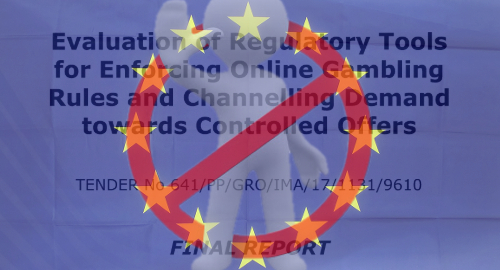A majority of European Union states employ some form of website domain blocking to combat unauthorized online gambling, but the effectiveness of such tactics leaves a lot to be desired.
The European Commission recently released a new Evaluation of Regulatory Tools for Enforcing Online Gambling Rules and Channeling Demand towards Controlled Offers. The 165-page report (read it here) looks to build on the 2011 Green Paper that started a consultation on harmonizing the continent’s approach to the online gambling question.
The report found that 18 EU/European Economic Area (EEA) member states employed website blocking as an enforcement tool, while 12 other states didn’t and four others were considering blocking. Of the states that do block, twelve use DNS blocking, two use IP-address blocking while the rest don’t limit themselves to any one technology.
The report found that a hefty 19% of domains on these blacklists were inactive, with Italy’s blacklist containing the highest percentage (63%) of dormant sites. Italy’s blacklist was also the largest with over 7k domains, well ahead of Greece (2,708) and Poland (2,379).
